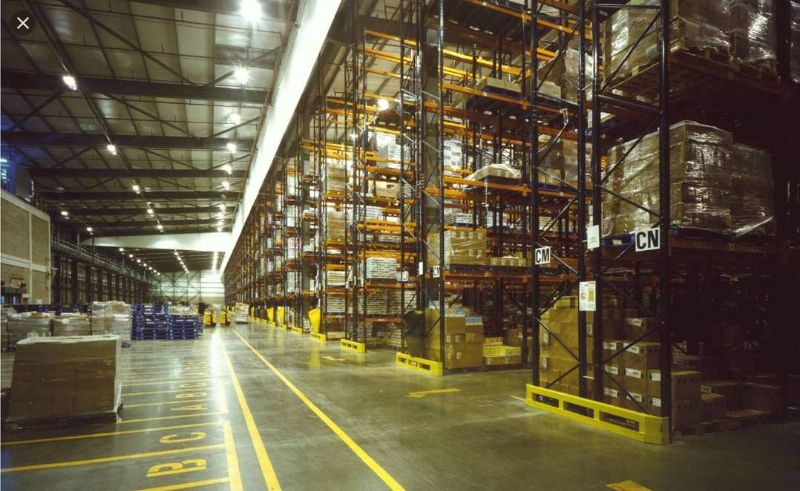

Warehouse is a place used for the storage or accumulation of goods. The function of storage can be carried out successful with the help of warehouses used for storing the goods.
Functions of Warehousing:
- Storage:
This is the basic function of warehousing. Surplus commodities which are not needed immediately can be stored in warehouses. They can be supplied as and when needed by the customers.
- Price Stabilization:
Warehouses play an important role in the process of price stabilization. It is achieved by the creation of time utility by warehousing. Fall in the prices of goods when their supply is in abundance and rise in their prices during the slack season are avoided.
- Risk bearing:
When the goods are stored in warehouses they are exposed to many risks in the form of theft, deterioration, exploration, fire etc. Warehouses are constructed in such a way as to minimize these risks. Contract of bailment operates when the goods are stored in wave-houses.
The person keeping the goods in warehouses acts as boiler and warehouse keeper acts as boiler. A warehouse keeper has to take the reasonable care of the goods and safeguard them against various risks. For any loss or damage sustained by goods, warehouse keeper shall be liable to the owner of the goods.
- Financing:
Loans can be raised from the warehouse keeper against the goods stored by the owner. Goods act as security for the warehouse keeper. Similarly, banks and other financial institutions also advance loans against warehouse receipts. In this manner, warehousing acts as a source of finance for the businessmen for meeting business operations.
- Grading and Packing:
Warehouses nowadays provide the facilities of packing, processing and grading of goods. Goods can be packed in convenient sizes as per the instructions of the owner.
Importance of warehousing
- Hold Wide Assortment – As noted in the Distribution Decisions tutorial, many resellers allow their customers to purchase small quantities of many different products. Yet to obtain the best prices from suppliers, resellers must purchase in large quantities. The need, thus, exists for storage facilities that not only hold a large volume of product, but also can hold a wide-variety of resellers’ inventory. Additionally, these facilities must be organized in a way that permits resellers to easily fill orders for their customers.
- Meet Unanticipated Demand – Holding products in storage offers a safeguard in cases of unexpected increases in demand for products.
- Needed for Large Shipping Quantities – As we noted in our discussion of transportation, manufacturers generally prefer to ship in large product quantities in order to more effectively spread transportation costs. This often means manufacturers must create storage areas in which the manufactured goods can build up in the quantities needed for such shipments to occur.
- Offer Faster Response – Additional storage facilities, strategically located in different geographical areas, allows a marketing organization to respond quickly to customers’ needs. The ability to respond with quick delivery can be a major value-added feature since it reduces the buyer’s need to maintain large inventory at their own locations.
- Security and Backup – For digital products, additional storage facilities are not only needed to offer customers faster access to products (e.g., online content and software) but are also needed to protect against technical glitches and security threats.
Benefits from Warehouses:
- Regular production:
Raw materials need to be stored to enable mass production to be carried on continuously. Sometimes, goods are stored in anticipation of a rise in prices. Warehouses enable manufacturers to produce goods in anticipation of demand in future.
- Time utility:
A warehouse creates time utility by bringing the time gap between the production and consumption of goods. It helps in making available the goods whenever required or demanded by the customers.
Some goods are produced throughout the year but demanded only during particular seasons, e.g., wool, raincoat, umbrella, heater, etc. on the other hand, some products are demanded throughout the year but they are produced in certain region, e.g., wheat, rice, potatoes, etc. Goods like rice, tobacco, liquor and jaggery become more valuable with the passage of time.
- Store of surplus goods:
Basically, a warehouse acts as a store of surplus goods which are not needed immediately. Goods are often produced in anticipation of demand and need to be preserved properly until they are demanded by the customers. Goods which are not required immediately can be stored in a warehouse to meet the demand in future.
- Price stabilization:
Warehouses reduce violent fluctuations in prices by storing goods when their supply exceeds demand and by releasing them when the demand is more than immediate productions. Warehouses ensure a regular supply of goods in the market. This matching of supply with demand helps to stabilize prices.
- Minimization of risk:
Warehouses provide for the safe custody of goods. Perishable products can be preserved in cold storage. By keeping their goods in warehouses, businessmen can minimize the loss from damage, fire, theft etc. The goods kept in the warehouse are generally insured. In case of loss or damage to the goods, the owner of goods can get full compensation from the insurance company.
- Packing and grading:
Certain products have to be conditioned or processed to make them fit for human use, e.g., coffee, tobacco, etc. A modern warehouse provides facilities for processing, packing, blending, grading etc., of the goods for the purpose of sale. The prospective buyers can inspect the goods kept in a warehouse.
- Financing:
Warehouses provide a receipt to the owner of goods for the goods kept in the warehouse. The owner can borrow money against the security of goods by making an endorsement on the warehouse receipt. In some countries, warehouse authorities advance money against the goods deposited in the warehouse. By keeping the imported goods in a bonded warehouse, a businessman can pay customs duty in installments.
Type of Warehouses:
There are three types of warehouses as described below:
- Private Warehouses:
The private warehouses are owned and operated by big manufacturers and merchants to fulfill their own storage needs. The goods manufactured or purchased by the owner of the warehouses have a limited value or utility as businessmen in general cannot make use of them because of the heavy investment required in the construction of a warehouse, some big business firms which need large storage capacity on a regular basis and who can afford money, construct and maintain their private warehouses. A big manufacturer or wholesaler may have a network of his own warehouses in different parts of the country.
- Public Warehouses:
A public warehouse is a specialized business establishment that provides storage facilities to the general public for a certain charge. It may be owned and operated by an individual or a cooperative society. It has to work under a license from the government in accordance with the prescribed rules and regulations.
Public warehouses are very important in the marketing of agricultural products and therefore the government is encouraging the establishment of public warehouses in the cooperative sector. A public warehouse is also known as duty-paid warehouse.
Public warehouses are very useful to the business community. Most of the business enterprises cannot afford to maintain their own warehouses due to huge capital Investment. In many cases the storage facilities required by a business enterprise do not warrant the maintenance of a private warehouse. Such enterprises can meet their storage needs easily and economically by making use of the public warehouses, without heavy investment.
Public warehouses provide storage facilities to small manufacturers and traders at low cost. These warehouses are well constructed and guarded round the clock to ensure safe custody of goods. Public warehouses are generally located near the junctions of railways, highways and waterways.
They provide, therefore, excellent facilities for the easy receipt, despatch, loading and unloading of goods. They also use mechanical devices for the handling of heavy and bulky goods. A public warehouse enables a businessman to serve his customers quickly and economically by carrying regional stocks near the important trading centres or markets of two countries.
Public warehouses provide facilities for the inspection of goods by prospective buyers. They also permit packaging, grading and grading of goods. The public warehouses receipts are good collateral securities for borrowings.
- Bonded Warehouses:
Bonded warehouses are licensed by the government to accept imported goods for storage until the payment of custom duty. They are located near the ports. These warehouses are either operated by the government or work under the control of custom authorities.
The warehouse is required to give an undertaking or ‘Bond’ that it will not allow the goods to be removed without the consent of the custom authorities. The goods are held in bond and cannot be withdrawn without paying the custom duty. The goods stored in bonded warehouses cannot be interfered by the owner without the permission of customs authorities. Hence the name bonded warehouse.
Bonded warehouses are very helpful to importers and exporters. If an importer is unable or unwilling to pay customs duty immediately after the arrival of goods he can store the goods in a bonded warehouse. He can withdraw the goods in installments by paying the customs duty proportionately.
In case he wishes to export the goods, he need not pay customs duty. Moreover, a bonded warehouse provides all services which are provided by public warehouses. Goods lying in a bonded warehouse can be packaged, graded and branded for the purpose of sale.








